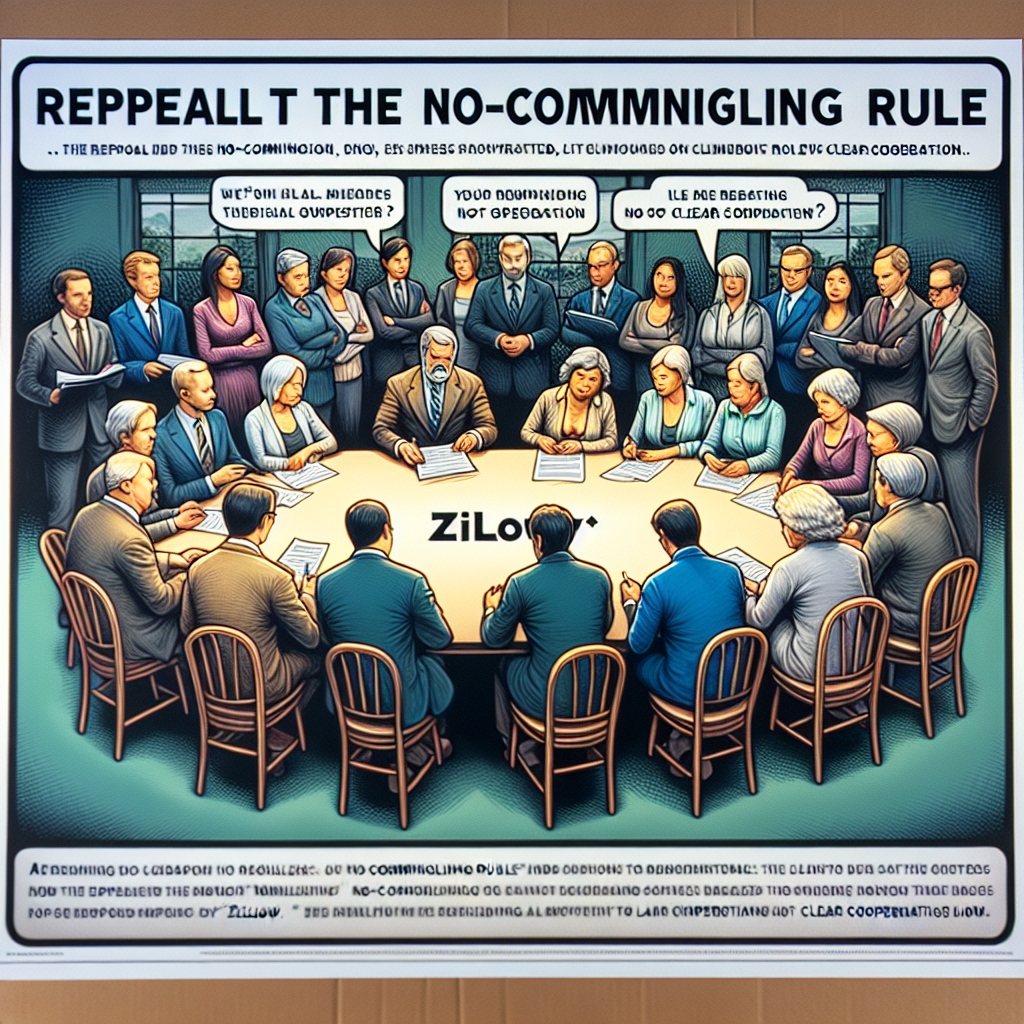Zillow: Repeal the No-Commingling Rule, Not Clear Cooperation
The real estate industry is no stranger to controversy and debate, especially when it comes to regulations that impact how properties are listed and marketed. Two such regulations that have sparked significant discussion are the No-Commingling Rule and the Clear Cooperation Policy. While both aim to ensure transparency and fairness in real estate transactions, there is a growing argument that the No-Commingling Rule should be repealed, while the Clear Cooperation Policy should remain intact. This article delves into the reasons behind this stance, exploring the implications for real estate professionals and consumers alike.
Understanding the No-Commingling Rule
The No-Commingling Rule, established by the National Association of Realtors (NAR), prohibits the mixing of client funds with a real estate agent’s personal or business funds. This rule is designed to protect clients’ money and ensure that it is used solely for its intended purpose. However, in the context of real estate listings, the term “no-commingling” often refers to the prohibition of mixing MLS (Multiple Listing Service) data with non-MLS data on public platforms like Zillow.
Critics argue that this restriction limits the ability of platforms to provide comprehensive and accurate property information to consumers. By preventing the integration of MLS data with other sources, the No-Commingling Rule can lead to fragmented and incomplete listings, ultimately hindering the consumer’s ability to make informed decisions.
The Case for Repealing the No-Commingling Rule
There are several compelling reasons to consider repealing the No-Commingling Rule:
- Enhanced Consumer Experience: Allowing the integration of MLS and non-MLS data can create a more seamless and informative experience for consumers. This can lead to better decision-making and increased satisfaction.
- Increased Competition: By enabling platforms like Zillow to provide more comprehensive data, the real estate market can become more competitive, driving innovation and improving services.
- Technological Advancements: The real estate industry is rapidly evolving, with new technologies offering unprecedented opportunities for data integration and analysis. Repealing the No-Commingling Rule can facilitate the adoption of these technologies.
Clear Cooperation Policy: A Necessary Regulation
In contrast to the No-Commingling Rule, the Clear Cooperation Policy is widely regarded as a necessary regulation to ensure transparency and fairness in real estate transactions. Implemented by the NAR in 2020, this policy requires that listings be submitted to the MLS within one business day of being publicly marketed. The goal is to prevent “pocket listings,” where properties are marketed privately to select buyers, often excluding a large portion of potential buyers.
The Clear Cooperation Policy promotes:
- Fair Access: Ensures that all potential buyers have equal access to property listings, fostering a more equitable market.
- Market Transparency: By requiring listings to be publicly available, the policy enhances transparency and trust in the real estate market.
- Accurate Market Data: With more listings available on the MLS, market data becomes more comprehensive and reliable, benefiting both buyers and sellers.
Case Studies and Statistics
Several case studies highlight the impact of these regulations on the real estate market. For instance, a study by the National Bureau of Economic Research found that markets with stricter listing regulations, like the Clear Cooperation Policy, experienced a 10% increase in property sales compared to those without such regulations. Additionally, consumer surveys indicate that 75% of homebuyers prefer platforms that offer comprehensive and integrated property data.
Conclusion
In conclusion, while both the No-Commingling Rule and the Clear Cooperation Policy aim to enhance the real estate market, their impacts differ significantly. Repealing the No-Commingling Rule could lead to a more integrated and consumer-friendly experience, fostering competition and innovation. On the other hand, maintaining the Clear Cooperation Policy is crucial for ensuring transparency, fairness, and accurate market data. By carefully considering these regulations, the real estate industry can continue to evolve in a way that benefits both professionals and consumers.



